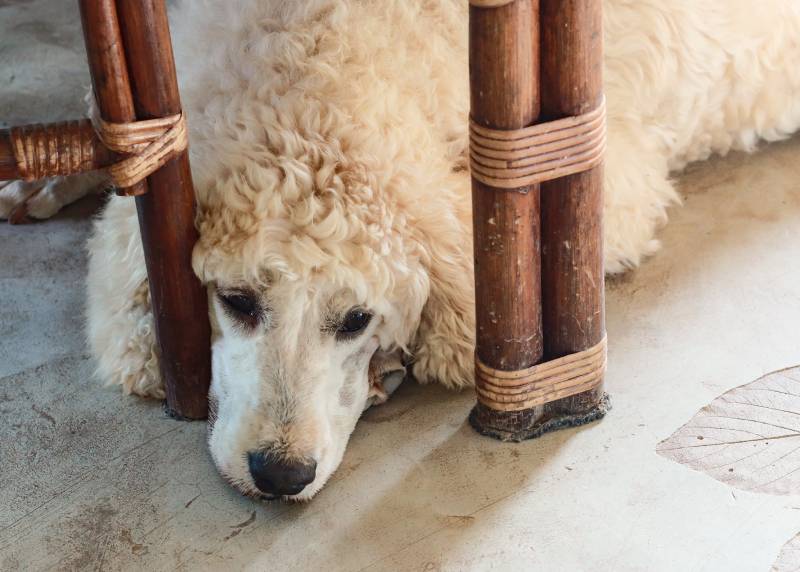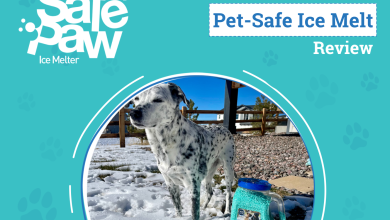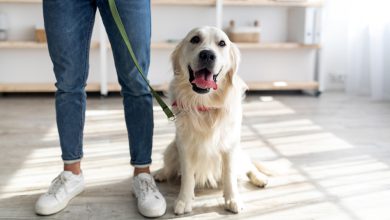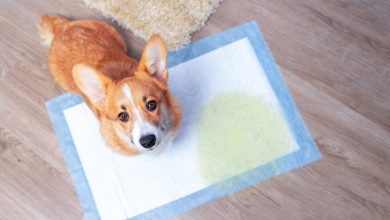Are Goldendoodles Prone to Sensitive Stomachs? Vet-Approved Facts & Explanation

Have you heard of Goldendoodles? They started popping up in the U.S. in the 1990s and have become increasingly popular ever since. After all, who could resist these fluffy, cuddly puppies?
If you’re considering getting a Goldendoodle, you should be aware of potential health issues that they may face. One common problem is a sensitive stomach. Anecdotally, Goldendoodles are prone to food sensitivities, which can cause digestive problems, though these can be seen with any breed. Food sensitivities can range from mild food intolerances to more serious allergic reactions that mostly affect the skin (cutaneous food allergies).
If you’re unsure whether your dog has a sensitive stomach or a food allergy, there are signs to look out for. That said, we always recommend speaking to your vet if you have any concerns about your dog’s health.


What Are the Signs of a Sensitive Stomach in Goldendoodles?
Typical signs of a sensitive stomach due to food intolerance include:
- Lack of appetite
- Diarrhea
- Vomiting
- Tiredness
- Grouchiness
- Flatulence or burping
- Fever
- Having a hunched and rigid posture
- Prayer posture (having their front legs stretched out and their tail in the air)
If your Goldendoodle has an allergy to a certain food (most commonly, a protein type, e.g., chicken), it tends to develop after long-term exposure to the protein.
The clinical signs in these dogs are usually cutaneous (skin related) and include:
- Itching (pruritus)
- Licking paws
- Recurrent ear infections (otitis externa)
- Recurrent bacterial infections of the skin
Gastrointestinal signs, including flatulence, a gurgly tummy, diarrhea or semi-formed stools, and vomiting, may also be seen in this hybrid breed, but itchiness and skin problems are more common. Stomach problems can arise in dogs due to various reasons, just like they do in people. Some could be due to your furry friend consuming something that they shouldn’t have, but if signs of gastrointestinal distress continue without getting better for more than 24–48 hours, it is best for your Goldendoodle to visit your vet for a check-up.
Other causes of gastrointestinal distress can be food sensitivities, eating too quickly, stomach ulcers, intestinal blockages, parasites, and tumors. Conversely, gastrointestinal issues may also be linked to liver or kidney issues, hormonal imbalances, pancreatitis, inner ear problems, heatstroke, cancer, pain, or stress.


How Do I Know If My Dog Has a Sensitive Stomach?
Certain dogs have a strong digestive system and can consume almost anything without experiencing any obvious adverse effects. However, some dogs may vomit if they eat anything slightly different from their usual food.
If your Goldendoodle frequently shows signs of an upset stomach, such as vomiting or diarrhea, they might have a sensitive stomach. The exact causes of this problem are not always clear, unfortunately, so visiting your vet is the best thing to do.
Treatment for Dogs With an Upset Stomach
The treatment for your Goldendoodle’s upset stomach will vary based on the underlying cause and the severity of the pain. For instance, if their signs are caused by pancreatitis (inflammation of the pancreas), the treatment will differ from that for a food allergy. If they have a mild stomach upset that goes away quickly, it may not require treatment. It’s advisable to seek guidance from your veterinarian if your dog’s signs continue for more than 48 hours or if you are at all concerned about their demeanor or behavior.
Investigations into the cause of the gastrointestinal upset will vary depending on your dog’s signs. Your vet will carry out a thorough examination of your Goldendoodle and then will decide whether blood tests, urine tests, imaging (X-rays/ultrasound), or hospitalization are necessary. Treatment options may include oral or injectable medications that reduce nausea and stop vomiting. Depending on the underlying cause, your vet may also recommend antacids, intravenous antibiotics, fecal analysis, deworming medicine, or subcutaneous fluids. In severe cases, hospitalization, intravenous fluids, and/or surgery might be necessary for your dog’s recovery.
If your vet suspects that your Goldendoodle is suffering from a food-related allergy, the only way to find out which food is causing the upset is an 8-week food trial. During this time, your dog will only be able to eat a simple diet containing a single novel protein, i.e., a protein that your pet has never eaten before. Your vet may refer you to a dermatologist if they suspect a food allergy, or they will guide you through the process themselves.


What Is the Best Food for Goldendoodles With Sensitive Stomachs?
If you’re looking for the best food for your Goldendoodle with a food intolerance or sensitive stomach, you might have come across many conflicting pieces of advice online. It can be overwhelming to sift through all the information, so start by talking to your vet or a veterinary nutritionist. They’re the experts and can give you the most reliable information. Plus, it’s always a good idea to ensure that there aren’t any underlying health issues that must be addressed first. Your furry friend will thank you for it!
Your veterinarian can provide recommendations for dog food brands and inform you about problematic ingredients and nutritional information to look out for during your search. You can also do your own research by checking out articles and journals written by veterinarians and nutritionists. However, be cautious of companies that promise miraculous results with their diets. Unless it’s a scientifically tested prescription diet, it’s likely too good to be true. Always prioritize caution when it comes to your pet’s diet.
Home-Cooked Meals for Dogs With Sensitive Stomachs
If your Goldendoodle is experiencing an upset stomach and diarrhea, a homemade meal consisting of cooked chicken and rice without any seasoning could help alleviate their discomfort. This can be given for 2 to 3 days, by which time, your dog’s condition should be improving. If it is not, it is best to visit the vet for an examination.
More and more owners are choosing to feed their pets homemade diets for all meals, but you must only do this in collaboration with a veterinary nutritionist to ensure that your dog is getting a balanced diet with the correct minerals and vitamins for their life stage.


Conclusion
If you’re considering adopting a Goldendoodle puppy, note that they may have a more sensitive stomach than other breeds. So, it’s a good idea to discuss any past stomach issues among the parents with the breeder before bringing your new furry friend home. If the parents of your puppy have allergies or food intolerances, it is more likely that your pup will suffer from these too.
There is a difference between food intolerances (loose poops and vomiting when the offending food is consumed) and cutaneous food allergies in dogs, and the signs and treatment options will vary significantly. If your dog is having gastrointestinal signs for more than 24–48 hours without signs of improvement or if they are becoming quieter and more lethargic, it’s vital that they see the vet. For dogs that are suffering from constant skin irritations, itching or licking their paws, and scratching their ears, it may be a food allergy that you’re dealing with. Your vet will be able to guide you through the process of getting your dog well and comfortable again.
Featured Image Credit: April Walker, Unsplash



